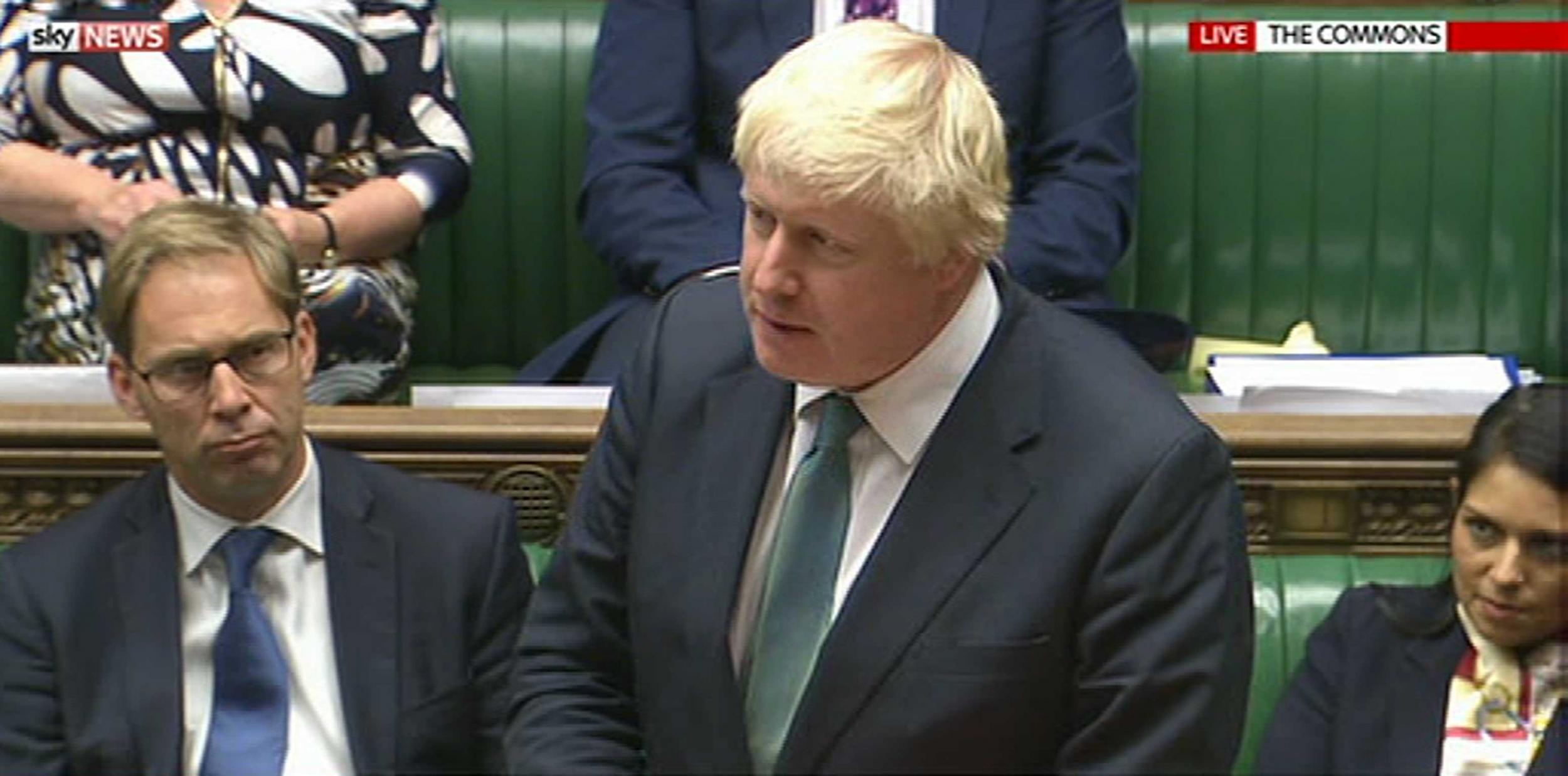Boris Johnson calls for demonstrations outside Russian embassy over Moscow’s role in the Syrian conflict
'Where is the Stop the War coalition at the moment? Where are they?' asked the Foreign Secretary

Your support helps us to tell the story
From reproductive rights to climate change to Big Tech, The Independent is on the ground when the story is developing. Whether it's investigating the financials of Elon Musk's pro-Trump PAC or producing our latest documentary, 'The A Word', which shines a light on the American women fighting for reproductive rights, we know how important it is to parse out the facts from the messaging.
At such a critical moment in US history, we need reporters on the ground. Your donation allows us to keep sending journalists to speak to both sides of the story.
The Independent is trusted by Americans across the entire political spectrum. And unlike many other quality news outlets, we choose not to lock Americans out of our reporting and analysis with paywalls. We believe quality journalism should be available to everyone, paid for by those who can afford it.
Your support makes all the difference.Foreign Secretary Boris Johnson has risked a diplomatic row as he said he would “like to see demonstrations outside the Russian embassy” in London over Moscow’s role in the ongoing Syrian conflict.
Speaking at the end of a three-hour emergency Commons debate on the Syrian crisis, Mr Johnson also appeared to cast aside calls to introduce no-fly zones over areas of the region, adding: “We cannot commit to a no-fly zone unless we are prepared to confront and perhaps shoot down planes or helicopters that violate that zone. We need to think very carefully about the consequences.”
Downing Street later told journalists at a briefing that “the notion that we would somehow be engaged in enforcing a no-fly zone with Russian aircraft in the same airspace is clearly a potentially very difficult and challenging situation.”
“It is one which would need to be very carefully looked at and the risks attached to it very carefully analysed before we would head down that path,” a spokesperson added.
In his debut appearance at the despatch box representing the Government, Mr Johnson added he was afraid “the wells of outrage are growing exhausted”. He said: “I listened to all the speeches that made the point that there is no commensurate horror it seems to me among some of those anti-war protests and I would like to see, I agree with the member for Cynon that I would certainly like to see demonstrations outside the Russian embassy … where is the Stop the War coalition at the moment? Where are they? I believe it’s up to us in the Government to show a lead.”
His call for protests outside the Russian embassy came after Ann Clwyd, a Labour MP, had said people who care about the plight of Syrian civilians should protest outside the Russian embassies across the globe every day until the country ends its bombing campaign. Ms Clwyd, the Cynon Valley MP,who served as special envoy on human rights in Iraq from 2003 until 2010, said worldwide protests would make it “crystal clear” to Russia and the regime of President Bashar al-Assad that “we think their actions are deplorable”. She said: “We need to speak up for and on behalf of our common humanity.
“So I would therefore call once again on everyone who cares about the plight of Syrian civilians to picket the Russian embassy in London and in capitals around the world from today.
“Two million, three million, four million people. It can be done. It has been done in the past.”
The Foreign Secretary also used the emergency debate to blame Moscow for the deliberate air strikes on aid convoys near the besieged city of Aleppo in September. “All the available evidence therefore points to Russian responsibility for the atrocity and I trust the UN board of inquiry will establish what happened,” he said. He called for an investigation into attacks on hospitals, which he said are being targeted with such frequency and precision that it is “difficult to avoid the conclusion that this must be policy”, amounting to a war crime.
In a warning to those responsible, he said: “I would remind this House that in recent history war criminals have been successfully prosecuted decades after their offences.”
During the debate Labour MP Alison McGovern, one of Jo Cox’s best friends in Parliament, fought back tears as she paid tribute to her former colleague’s commitment to helping refugees. In an impassioned speech during an emergency debate on Syria, Ms McGovern told the Commons what she thought Ms Cox would have made of the unfolding situation and the besieged city of Aleppo.
Ms Cox was killed outside her constituency surgery in Birstall, near Leeds, just days before the EU referendum.
Fighting back tears, Ms McGovern, the MP for Wirral South, said “I cannot help noting that in serving as co-chair of the [All-Party] Friends of Syria group, I am taking up the role of my friend Jo Cox.”
“She would have been here and she would have known what was needed,” she added. “Most of all, I think she would have said we should help refugees fleeing Syria, not just 20,000 by 2020, but many more, much more quickly.”
Before her death, Ms Cox called for the Government to resettle more refugees from Syria and other conflict zones, particularly unaccompanied children. Responding to Ms McGovern, fellow Labour MP John Woodcock said: “There is no one better who could seek to step into the shoes of our dear missed friend Jo Cox than her.”
Join our commenting forum
Join thought-provoking conversations, follow other Independent readers and see their replies
Comments